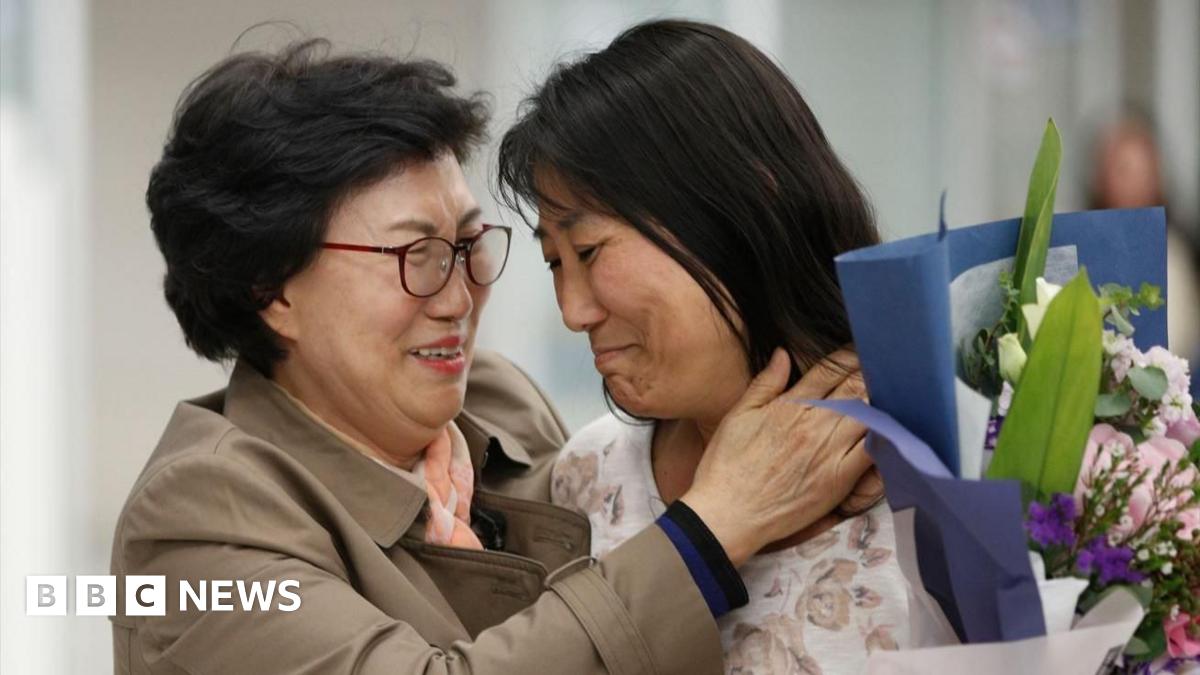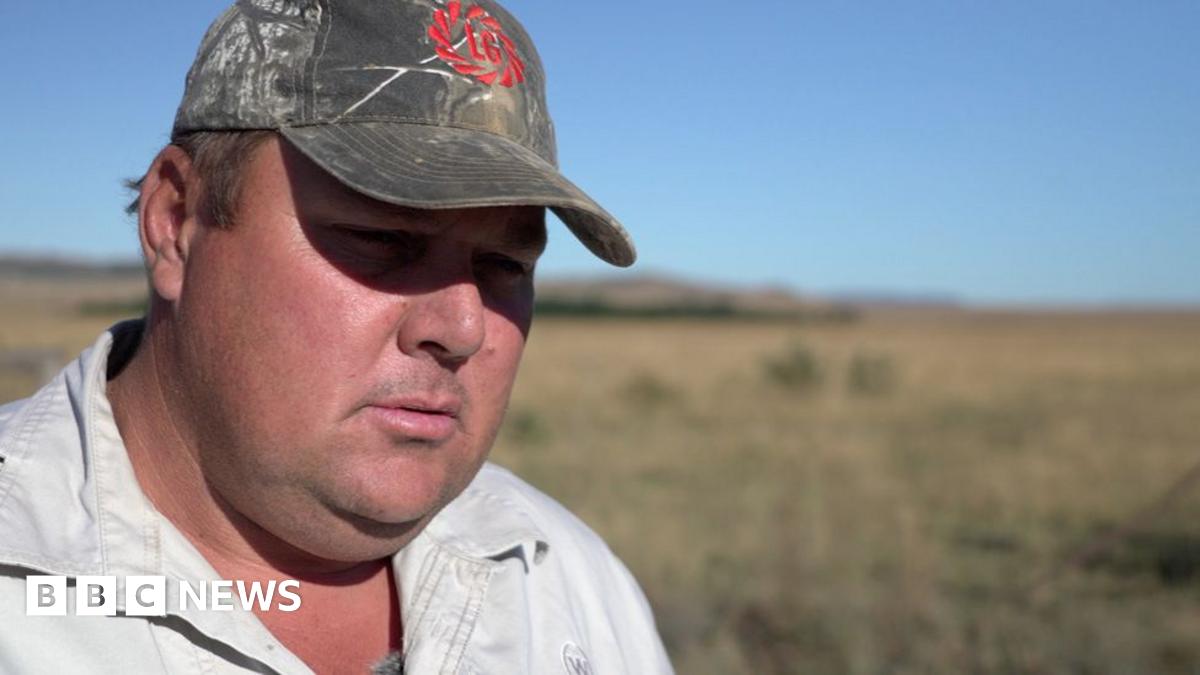A Deeper Look At South Korea's International Adoption Practices

Welcome to your ultimate source for breaking news, trending updates, and in-depth stories from around the world. Whether it's politics, technology, entertainment, sports, or lifestyle, we bring you real-time updates that keep you informed and ahead of the curve.
Our team works tirelessly to ensure you never miss a moment. From the latest developments in global events to the most talked-about topics on social media, our news platform is designed to deliver accurate and timely information, all in one place.
Stay in the know and join thousands of readers who trust us for reliable, up-to-date content. Explore our expertly curated articles and dive deeper into the stories that matter to you. Visit Best Website now and be part of the conversation. Don't miss out on the headlines that shape our world!
Table of Contents
A Deeper Look at South Korea's International Adoption Practices: A Complex History and Evolving Landscape
South Korea's international adoption program has a long and complex history, marked by significant shifts in policy and public perception. For decades, it was one of the largest sources of adoptees globally, with tens of thousands of Korean children finding homes in countries like the United States, Canada, and Europe. However, in recent years, the number of international adoptions has dramatically decreased, prompting a renewed examination of the practices and their ethical implications. This article delves into the historical context, current realities, and future prospects of South Korea's international adoption practices.
The Historical Context: A Legacy of War and Poverty
The surge in international adoptions from South Korea began in the aftermath of the Korean War (1950-1953). A combination of poverty, social stigma surrounding unmarried mothers, and limited social support systems contributed to a high number of children being relinquished for adoption. Many of these children were placed in orphanages, some of which faced criticism for their conditions. The resulting adoption system, while providing homes for many children, also faced accusations of lacking transparency and adequate safeguards.
The Decrease in International Adoptions: Shifting Priorities and Ethical Concerns
Since the late 1990s, the number of international adoptions from South Korea has plummeted. Several factors contribute to this decline:
- Improved Socioeconomic Conditions: South Korea's remarkable economic growth has significantly reduced poverty, leading to fewer children being relinquished for adoption.
- Increased Domestic Adoption Rates: Greater societal acceptance of single mothers and improved domestic adoption services have provided more options for children within the country.
- Ethical Concerns and Scrutiny: Increased awareness of ethical concerns surrounding international adoption, including allegations of coercion and insufficient oversight, has led to greater scrutiny of the process. This includes concerns about the rights of birth mothers and the potential for exploitation.
- Changes in International Adoption Laws: Both South Korea and many receiving countries have implemented stricter regulations and increased oversight of international adoption agencies.
The Current Landscape: Domestic Adoption and Emphasis on Reunification
The focus in South Korea has shifted towards domestic adoption and family reunification efforts. The government is investing in support services for single mothers and families facing challenges, prioritizing keeping children within their country of origin. This includes initiatives aimed at providing financial assistance, counseling, and community support.
The Search for Identity: The Experiences of Adoptees
Many Korean adoptees have embarked on journeys to reconnect with their birth heritage and culture. This has led to the growth of support networks and organizations dedicated to supporting adoptees and facilitating their search for identity. Resources like the Korea Adoption Information Exchange offer valuable information and support for adoptees and their families. [Link to a relevant organization's website – example only, replace with a real and relevant link]
The Future of International Adoption from South Korea: Transparency and Ethical Considerations
The future of international adoption from South Korea remains uncertain. While the number of international adoptions is low, it's not entirely absent. Any future adoptions will need to adhere to the highest ethical standards, emphasizing transparency, informed consent, and the best interests of the child. Continued focus on domestic support systems and reunification efforts will likely remain the primary focus.
Conclusion: A Legacy of Change
South Korea's international adoption program has undergone a profound transformation, reflecting the nation's economic development and evolving social values. While the legacy of past practices requires careful consideration, the emphasis on domestic support and reunification signifies a move towards prioritizing the well-being and rights of Korean children. The challenges and lessons learned from this experience continue to shape discussions on international adoption globally.

Thank you for visiting our website, your trusted source for the latest updates and in-depth coverage on A Deeper Look At South Korea's International Adoption Practices. We're committed to keeping you informed with timely and accurate information to meet your curiosity and needs.
If you have any questions, suggestions, or feedback, we'd love to hear from you. Your insights are valuable to us and help us improve to serve you better. Feel free to reach out through our contact page.
Don't forget to bookmark our website and check back regularly for the latest headlines and trending topics. See you next time, and thank you for being part of our growing community!
Featured Posts
-
 Rockies 2024 Season A Historically Bad Beginning
May 25, 2025
Rockies 2024 Season A Historically Bad Beginning
May 25, 2025 -
 Yacht Smuggling Ex Smuggler Details Simple Method For Uk Entry
May 25, 2025
Yacht Smuggling Ex Smuggler Details Simple Method For Uk Entry
May 25, 2025 -
 From The Fringes Of Tragedy A Personal Account Of School Shootings
May 25, 2025
From The Fringes Of Tragedy A Personal Account Of School Shootings
May 25, 2025 -
 South Africa Responds To Trumps Erroneous Burial Site Claim
May 25, 2025
South Africa Responds To Trumps Erroneous Burial Site Claim
May 25, 2025 -
 Wednesday Evening Rain Tornado Threat Ends Flood Risk Persists
May 25, 2025
Wednesday Evening Rain Tornado Threat Ends Flood Risk Persists
May 25, 2025
Latest Posts
-
 Sundays Indy 500 2025 Live Stream Tv Broadcast Start Time And Key Drivers
May 25, 2025
Sundays Indy 500 2025 Live Stream Tv Broadcast Start Time And Key Drivers
May 25, 2025 -
 Peyton Stearns Bold French Open Prediction Stuns Tennis Fans
May 25, 2025
Peyton Stearns Bold French Open Prediction Stuns Tennis Fans
May 25, 2025 -
 Philadelphia Phillies Nola On Il Abel Called Up For Mlb Debut
May 25, 2025
Philadelphia Phillies Nola On Il Abel Called Up For Mlb Debut
May 25, 2025 -
 Ankle Sprain Sidelines Phillies Nola Abels Major League Debut Imminent
May 25, 2025
Ankle Sprain Sidelines Phillies Nola Abels Major League Debut Imminent
May 25, 2025 -
 Singer Billy Joels Upcoming Tour Cancelled Amidst Neurological Disorder
May 25, 2025
Singer Billy Joels Upcoming Tour Cancelled Amidst Neurological Disorder
May 25, 2025
